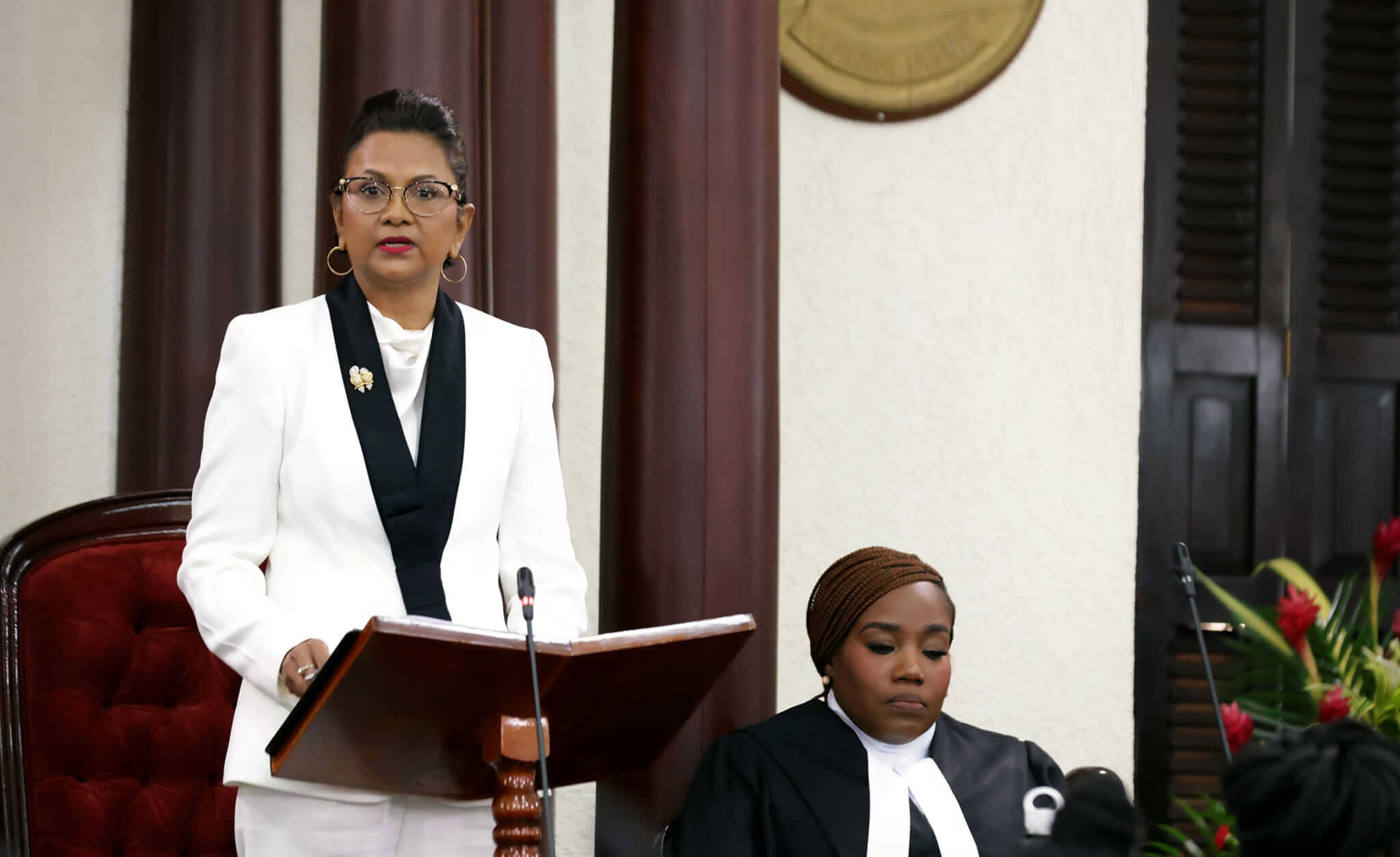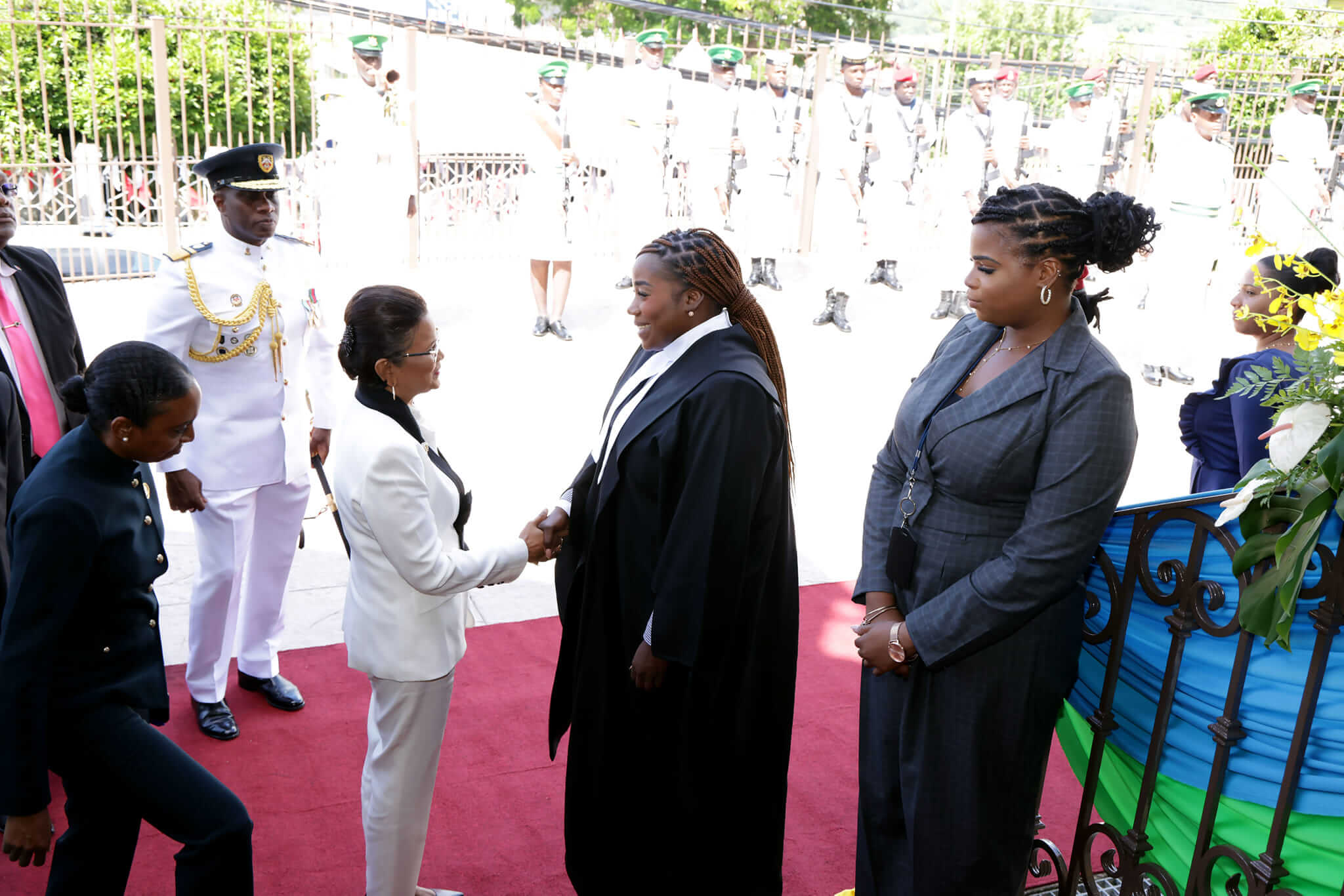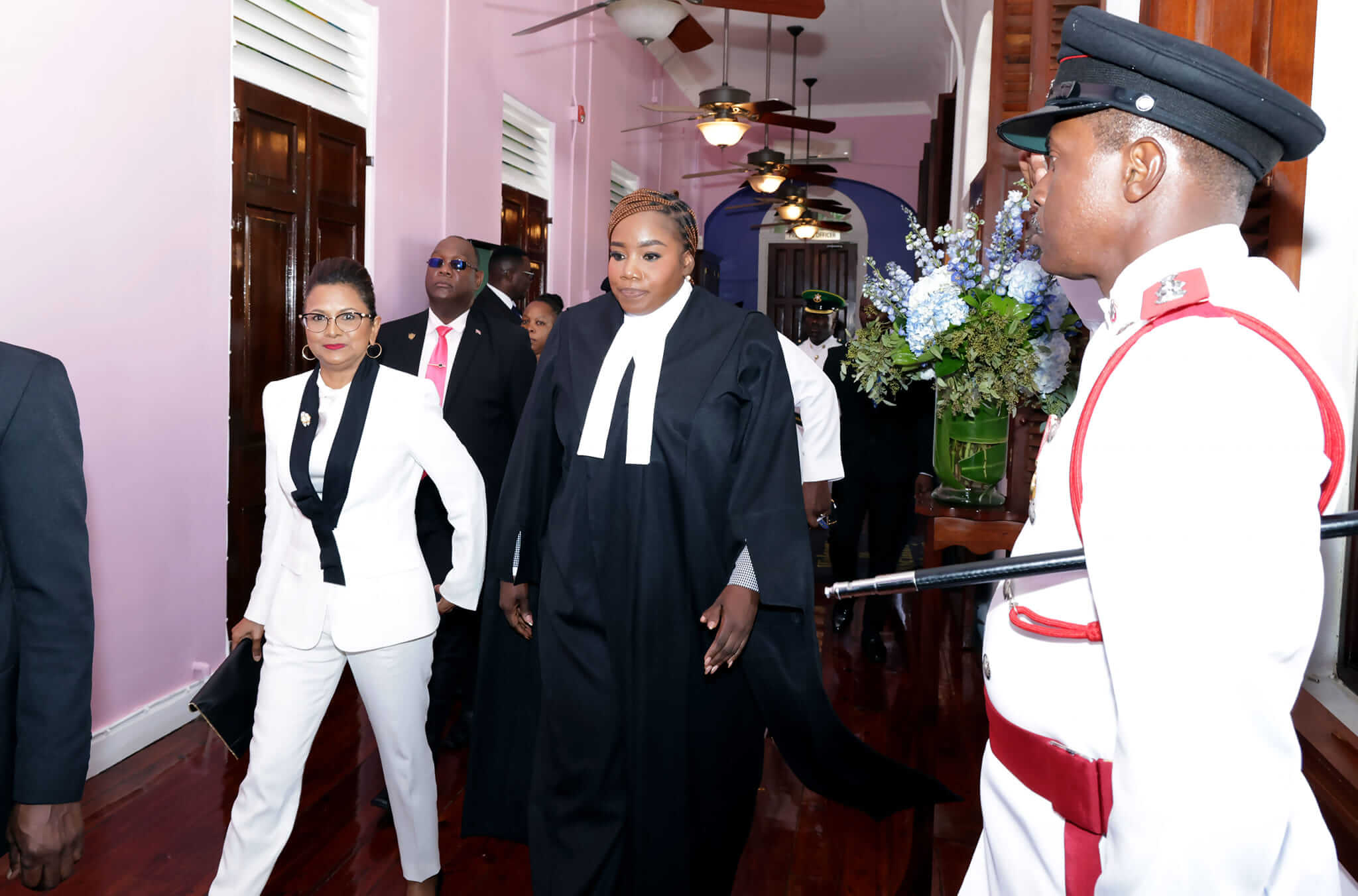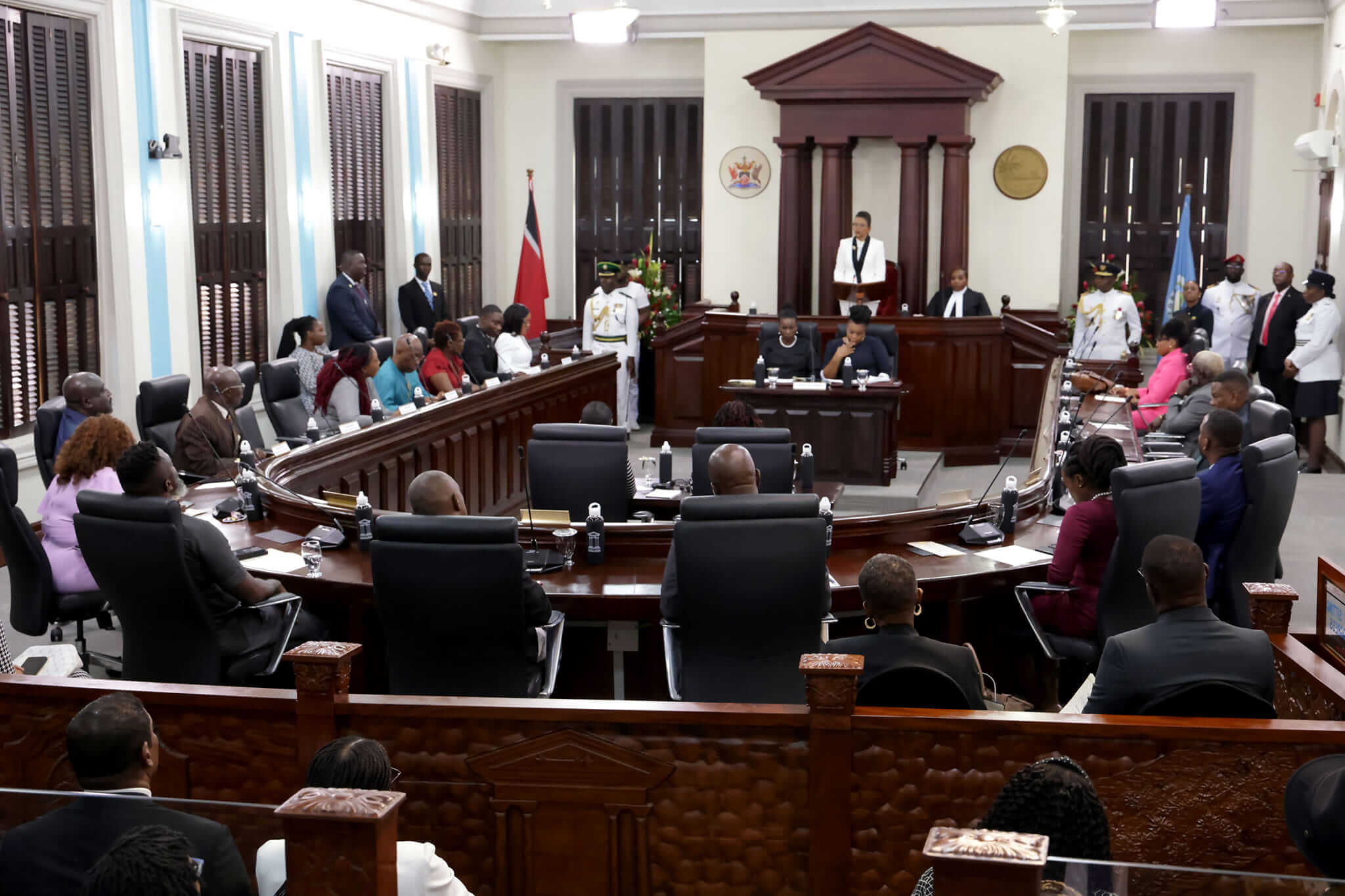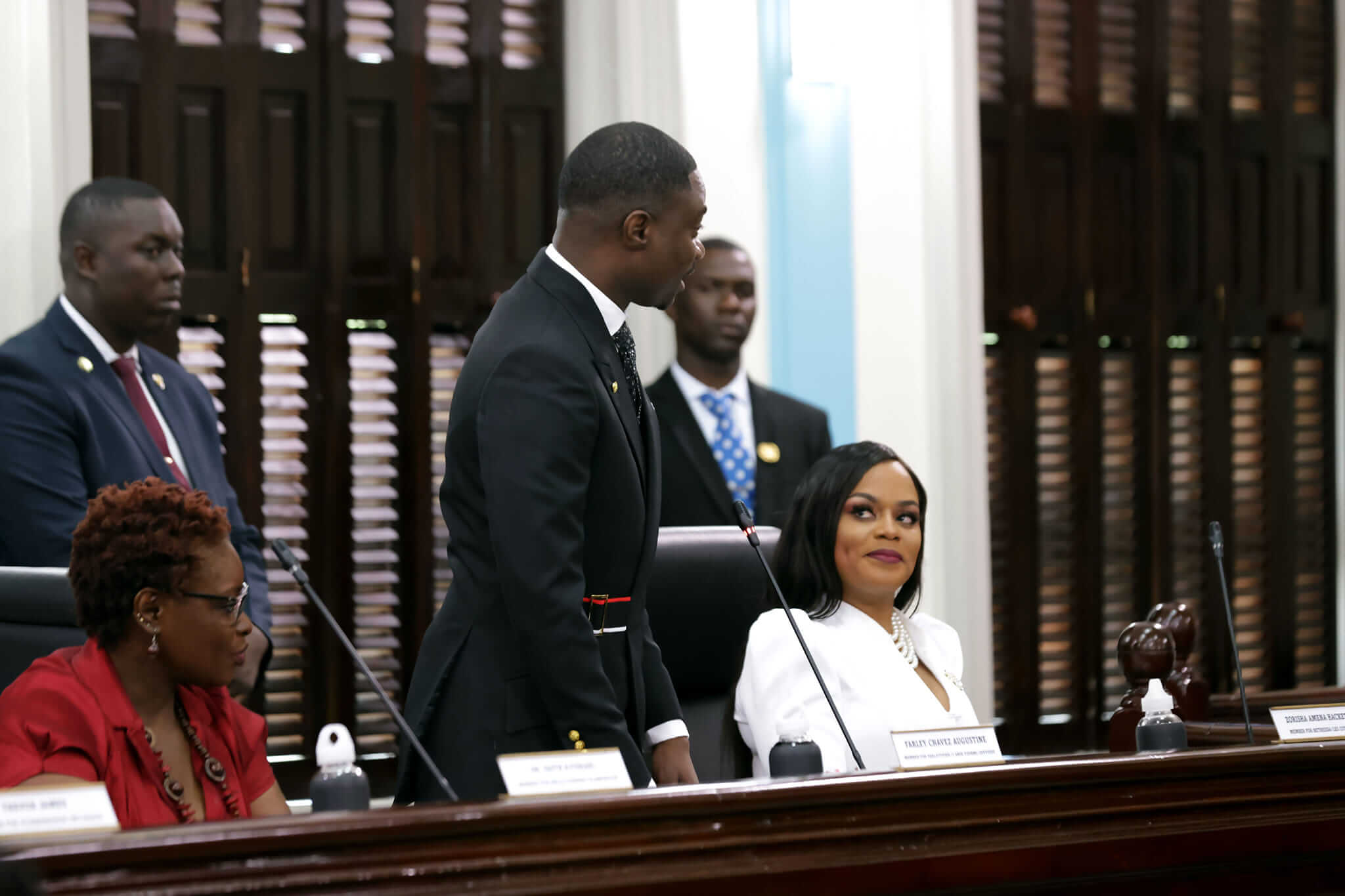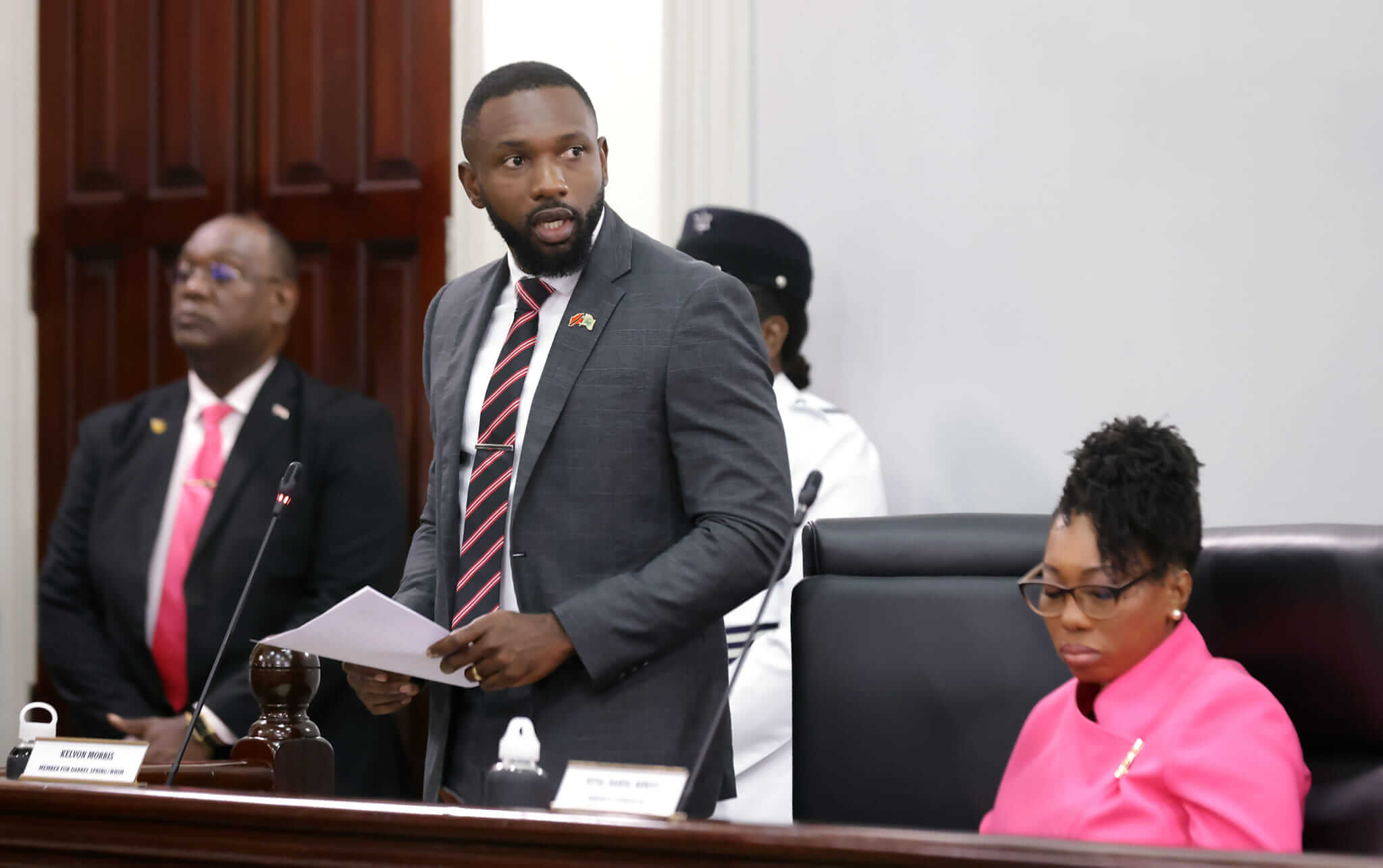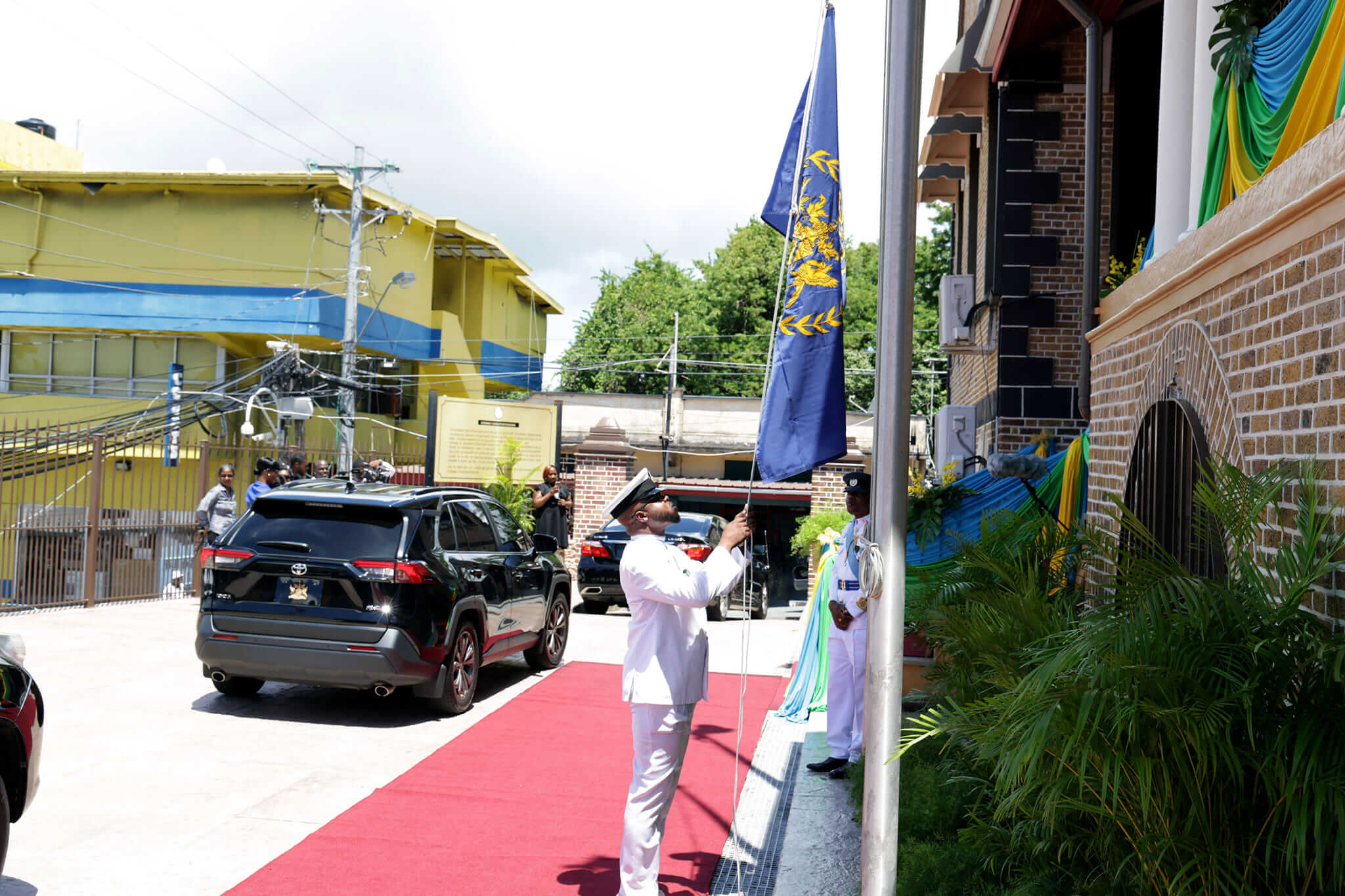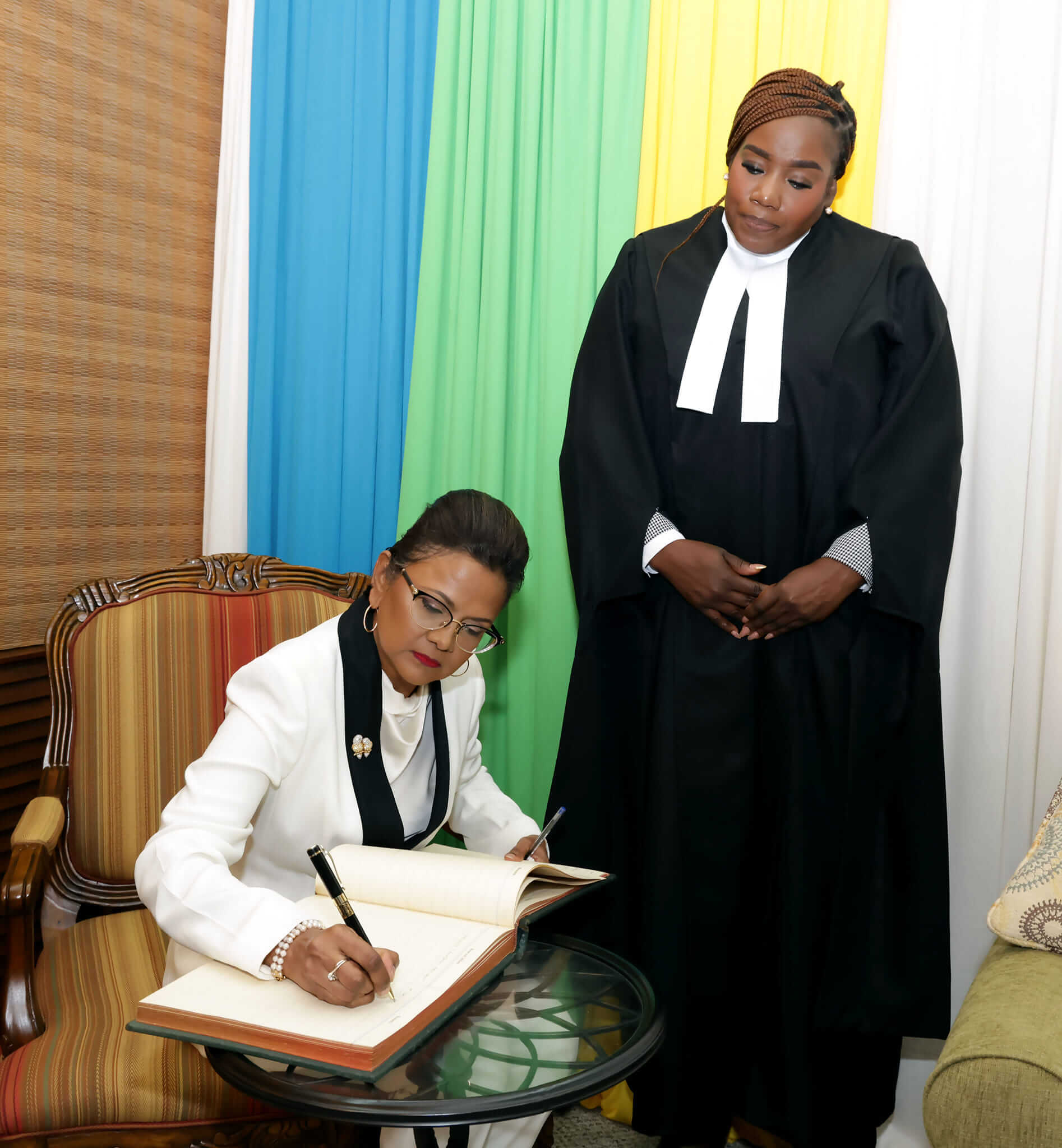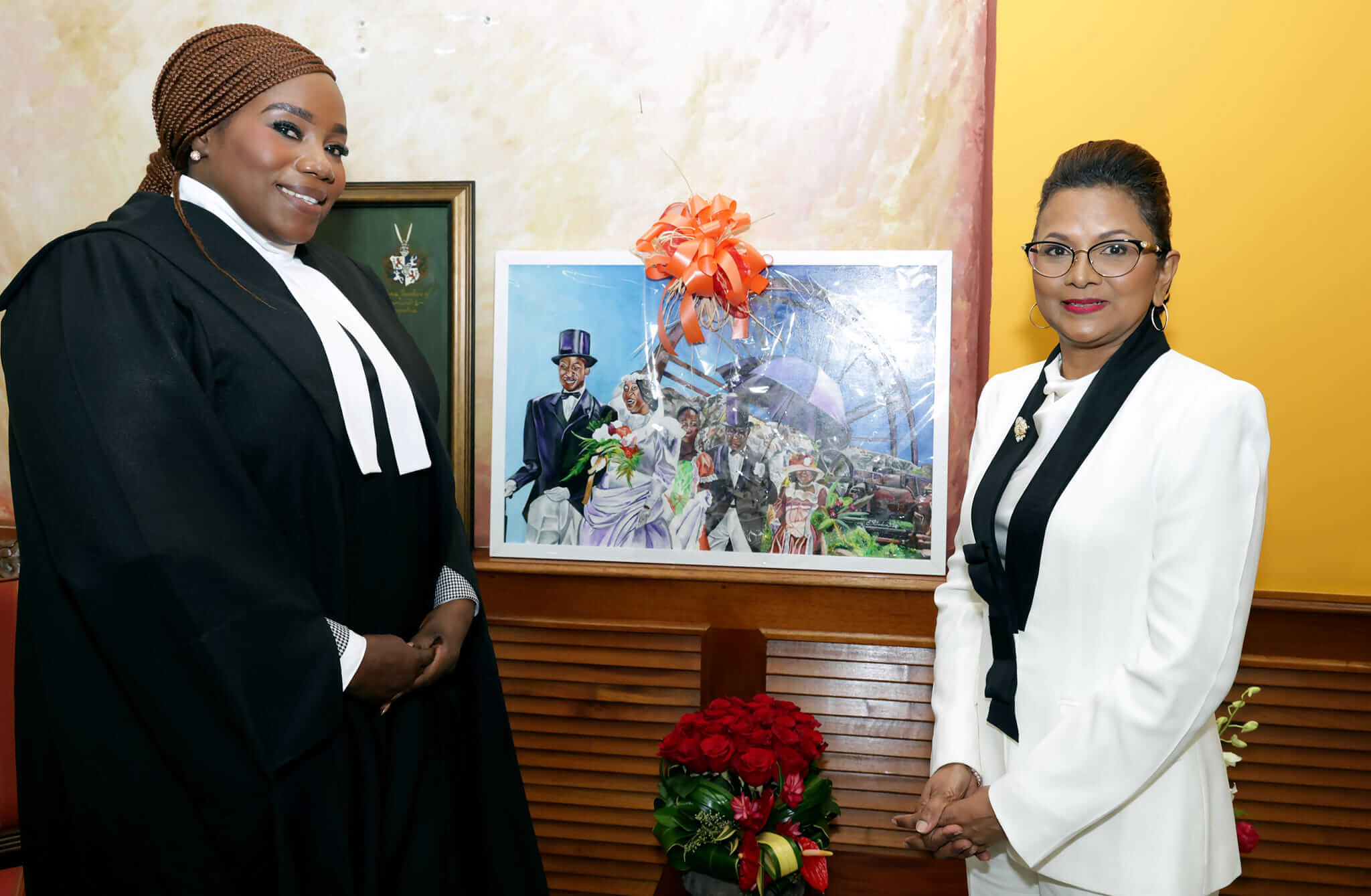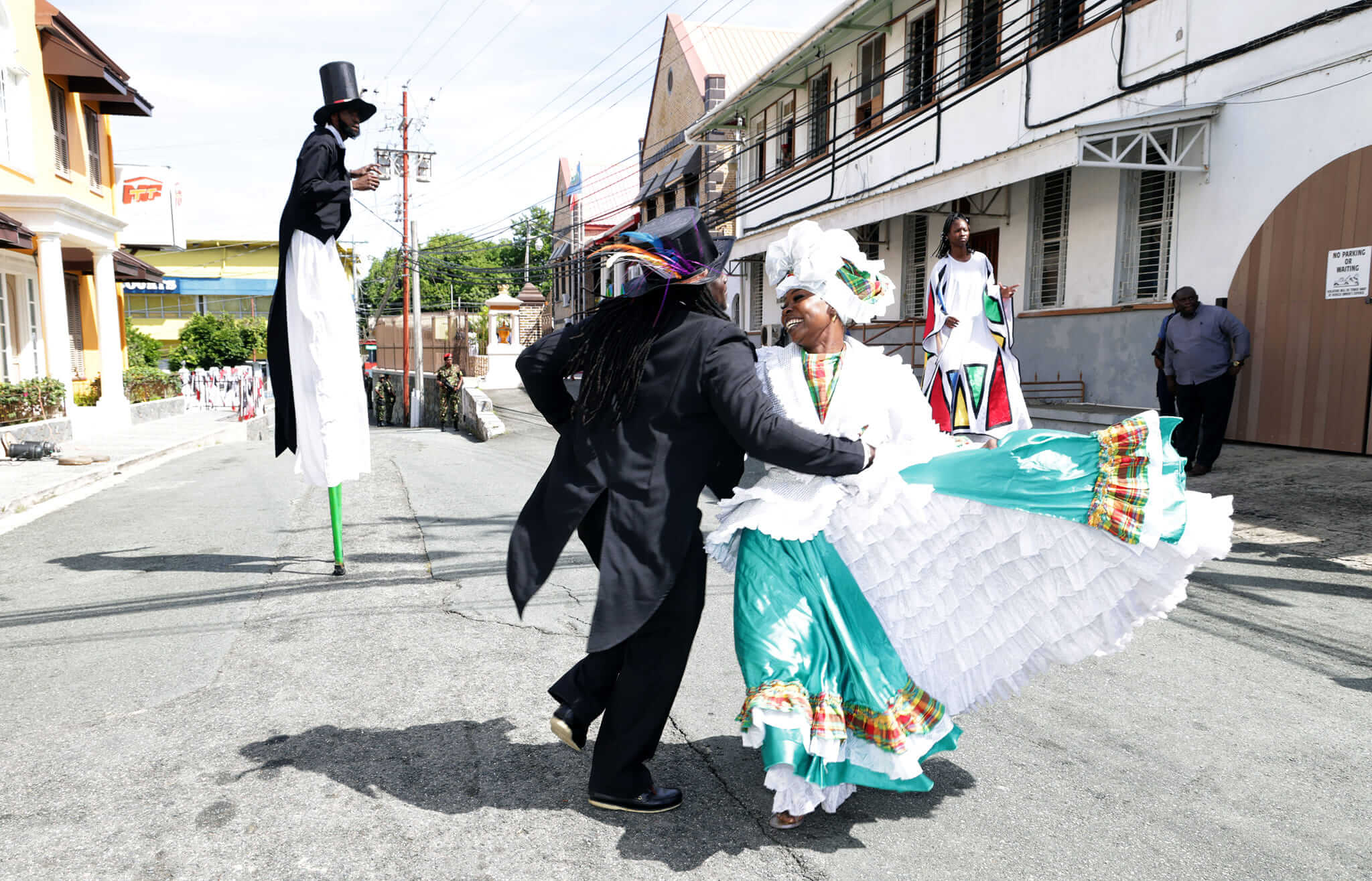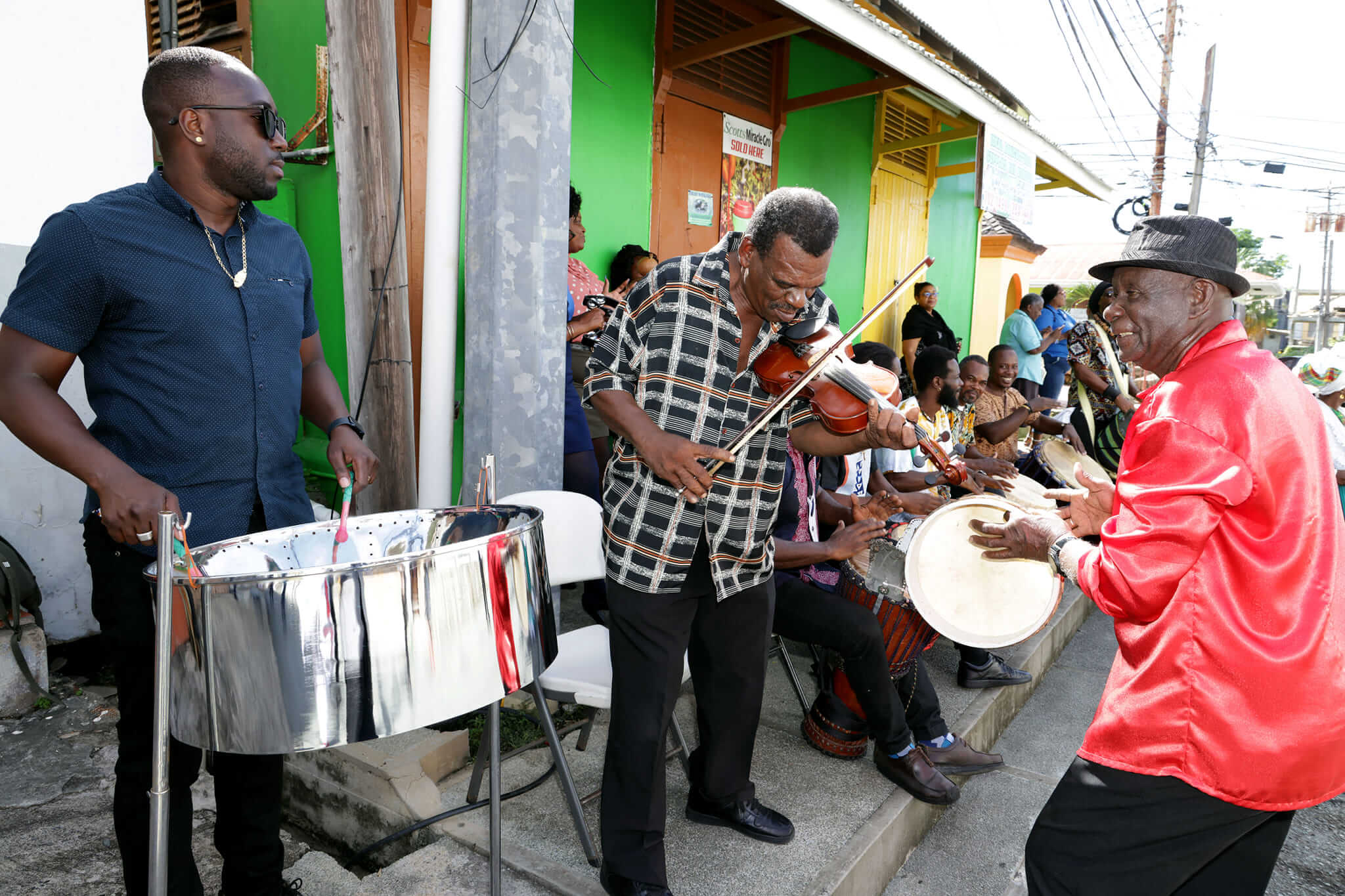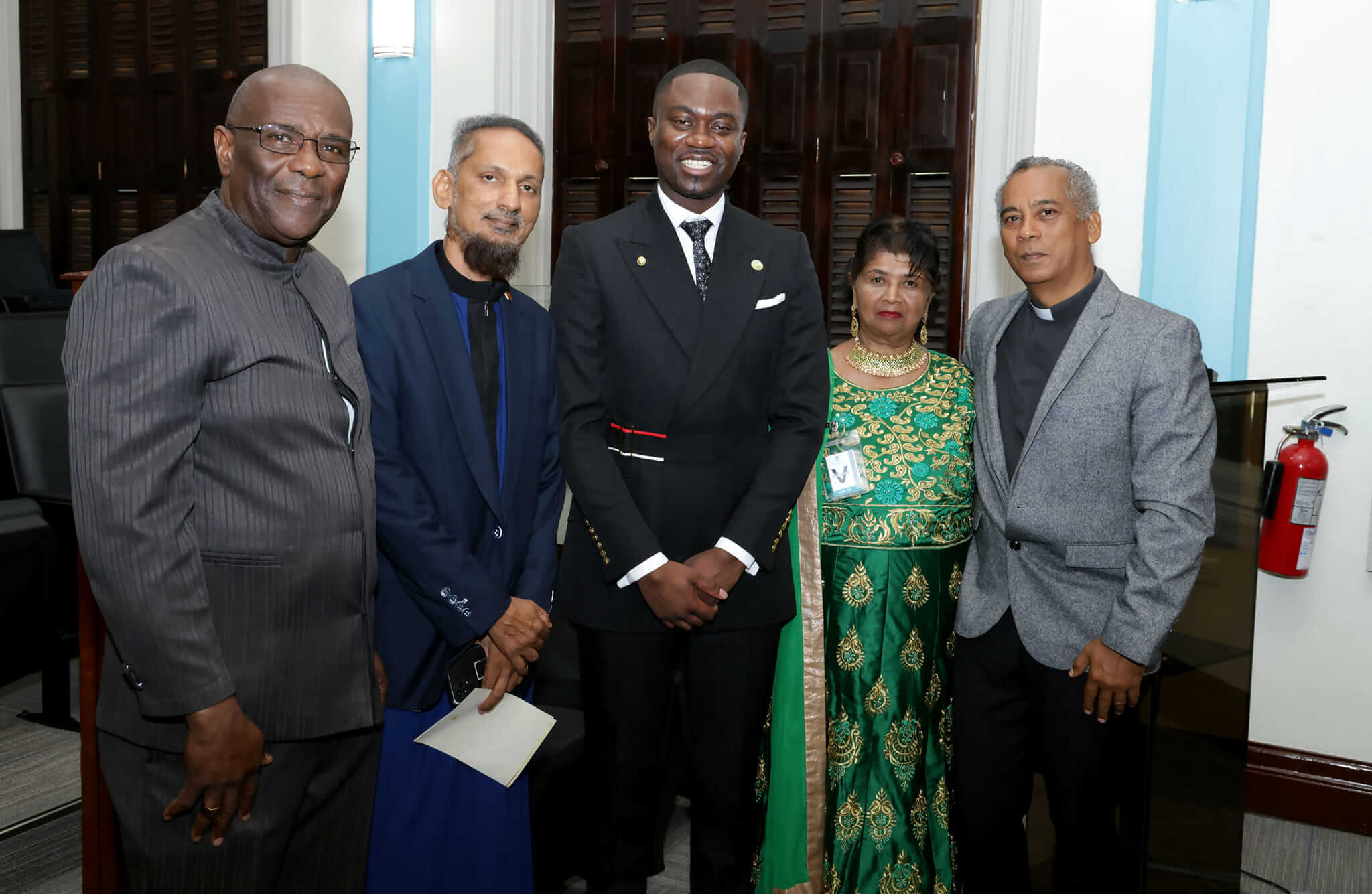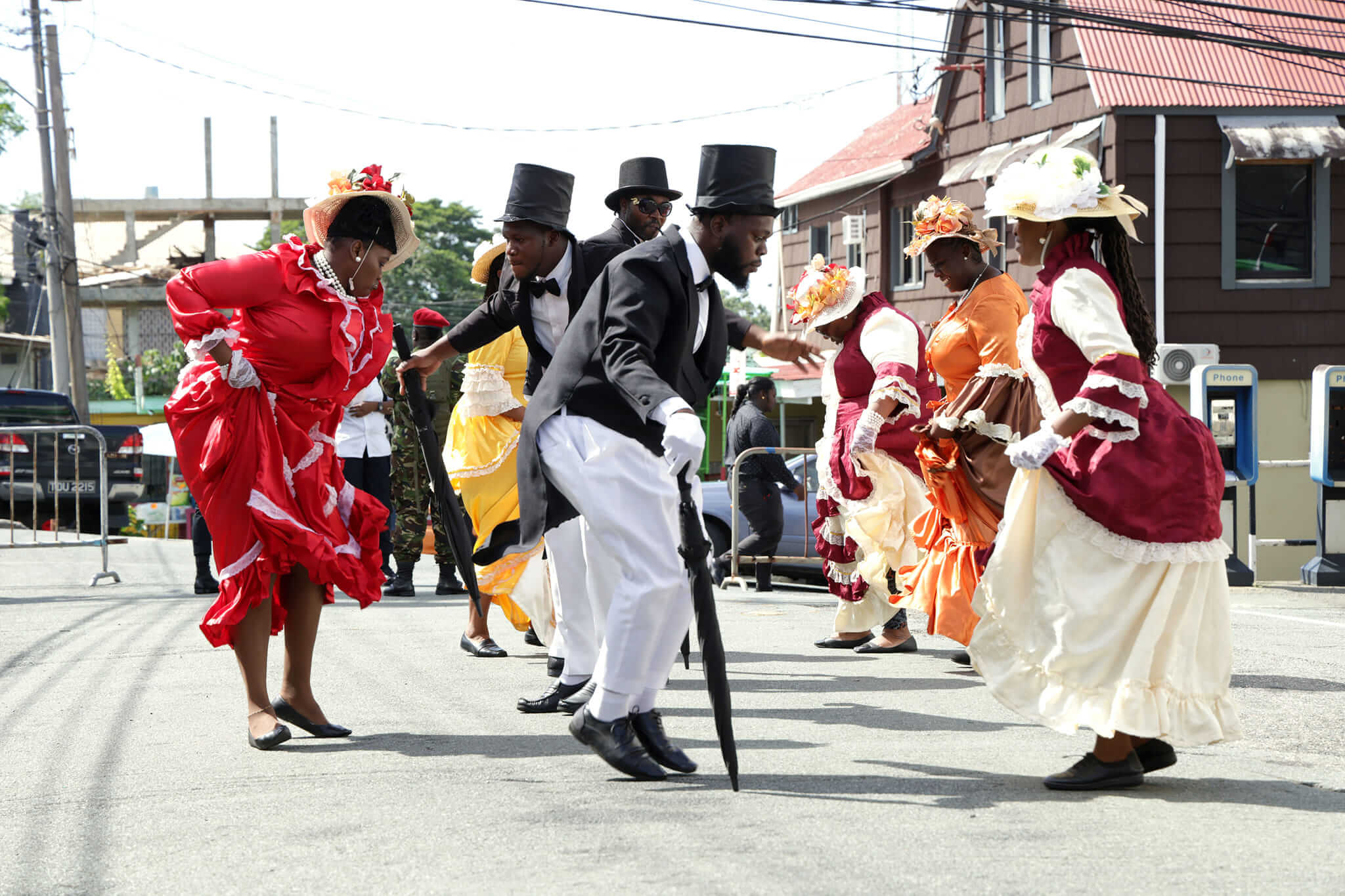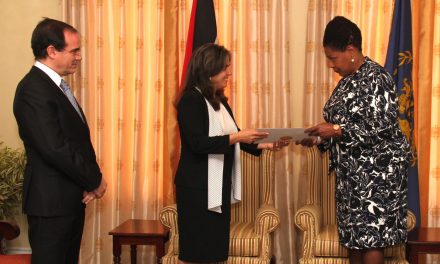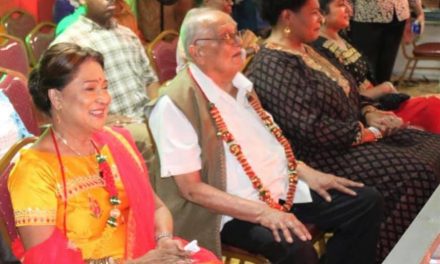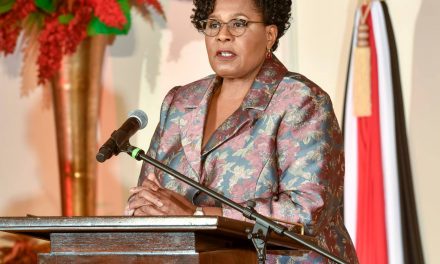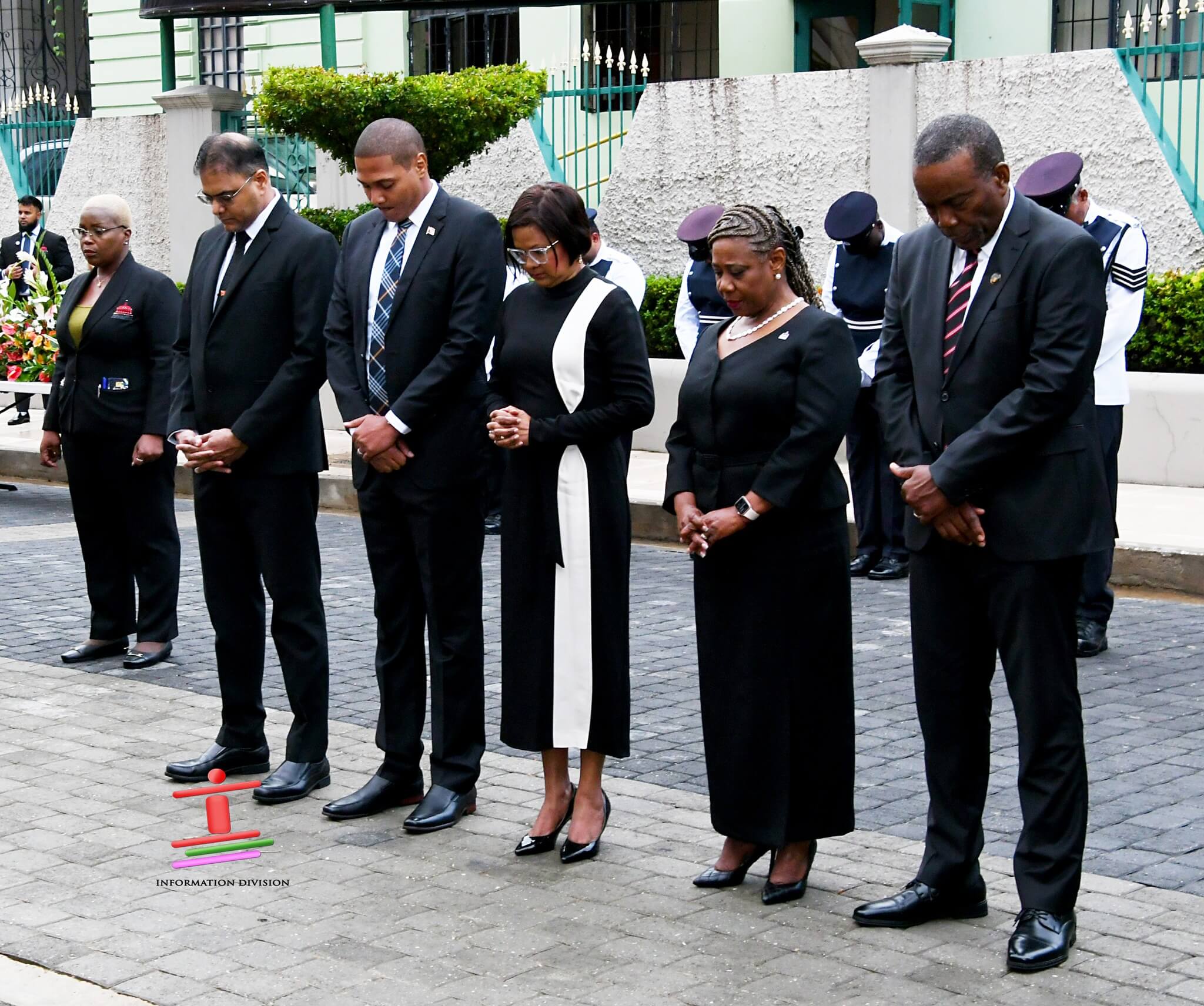Madame Presiding Officer; Honourable Members of the Assembly…
I should like to begin by thanking Madame Presiding Officer for enabling me to be here, by extending to me the invitation to address you this morning. Permit me to thank, as well, the staff of the Assembly, for the courtesy and the kindness that have been shown to me throughout my visit. And permit me especially to thank all of our Honourable Assemblymen for their faithful and dedicated service to the people of Tobago and, by extension, to the entire country.
On September 11, I had the similar honour of addressing the country’s Parliament on the occasion of the Ceremonial Opening of the Fourth Session of the 12th Parliament of the Republic of Trinidad and Tobago. In the course of my address on that occasion, I stated that there were a number of areas on which I hoped Parliament might see it fit to focus during this upcoming Session and I listed just five (5) of them. On the following day, it was reported in the Guardian Newspaper that the Chief Secretary had said “I think it’s about time and I’m hoping in this parliamentary session—although the President didn’t make that one of her wishes—I’m hoping that it will be the wish of the current parliament in the current session, for us to revive matters concerning the autonomy for Tobago.”
Let me speak to this briefly.
There are some matters which, as President, one adjudges are best first raised at fora especially – if not exclusively – created for their articulation and attention. The matter of autonomy for Tobago, I adjudged to be such a matter. It is not that I do not wish for autonomy for Tobago. There are few things that I wish for more. Rather, it was with care and deliberation, and with an abiding respect for the people of Tobago and for its democratic institutions, that I had determined, even then, that I would raise the matter of autonomy of Tobago, in Tobago first, with the people of Tobago, and in this place – created exclusively to treat with all matters Tobago.
And so, let me put to rest any anxieties over what it might have been believed I was not wishing for, as I addressed the Parliament on September 11. Let me assure you that the matter of autonomy for Tobago, is one that I regard as absolutely critical to the proper development of our country. And, today, on September 27, 2023, let me say to the people of Tobago, in Tobago, and in this most esteemed forum, that, like the Chief Secretary, I, too, think it’s about time for us to revive matters concerning the autonomy of Tobago. And let me explain why.
The matter of autonomy for Tobago is not new. Every Chairman and Chief Secretary of the Assembly – from the revered Arthur Napoleon Raymond Robinson to our present dynamic and able Chief Secretary – has raised the matter. It is the most burning issue in the relationship between our two islands. And, it is not in the least bit surprising that this should be so. The issue emerged the moment that, and in the manner in which, our two islands were joined together – not by the instinctive and spontaneous will of a people, but by a tactical and strategic manoeuvre of a colonial power, who promulgated an Order in Council in 1898, and declared that our two islands should be joined with effect from January 1, 1899. Like so many unions at that time, ours was a union of socio-economic and political convenience. It was a union imposed upon our people from on high.
To our credit, we have worked hard since then to make successful, a marriage that had been arranged for us by an imperial power that controlled us at the time. But, for that marriage to be a healthy and a successful marriage today, the parties to it must, as all successful marriages require, each develop their own independent identities and fulfil their individual potential. It is only when each partner is allowed to develop his or her own fullest potential, that each is then able to return to the other, larger than when first they came together, and strengthen and deepen their underlying union. It is idle to talk of a perfect marriage. But it is essential to work towards a marriage in which each partner feels that his or her individual identity and individual aspirations, are not only respected, but are supported. As Kahil Gibran put it in his famous poem on marriage: “Sing and dance together and be joyous, but let each one of you be alone, Even as the strings of a lute are alone, though they quiver with the same music”.
The question of autonomy for Tobago is the question of how to let each of us be alone, yet remain a part of the same, indivisible whole, and all the while quiver with the same music of a single national identity.
It is not that, as a people, we have not earnestly been trying to answer that conundrum. We have been trying to answer it for more than 100 years. The history of our attempts at answering it is well-recorded. In her book The Union of Trinidad and Tobago – A Historical Perspective, Dr. Rita Pemberton comments that since in the early 20th century, there was in Tobago discontent that the island was made a ward, or administrative district, of Trinidad. Many in Tobago felt that their views and needs would be largely overlooked by the government in Trinidad.
By 1977, that discontent had risen to such a level that, in the House of Representatives in Port of Spain, Former President Arthur Napoleon Raymond Robinson, in his speech on Internal Self-Government for Tobago, was driven to tell the nation that:
“The purpose of this motion is to place a substantial part of the responsibility for the conduct of Tobago’s affairs fairly and squarely where it belongs; that is to say, in the hands of the residents of Tobago themselves…and let me make it absolutely clear, whatever the outcome of this motion, whether the members opposite vote for it or against it, the fact of the matter is that from today self-government for Tobago is on the national agenda and it will not be off the national agenda until it has been achieved.”
I believe that, at this juncture of our country’s history, our task, the signal importance of which has escaped neither the Chief Secretary nor me, is to fight to keep the question of Tobago’s autonomy on the national agenda, and to strain every muscle in us to struggle for its advancement and attention, until it is achieved.
In doing so, we need, I think, to build on our past attempts at legislative measures to secure Tobago’s autonomy. There have been many such attempts; but there need to be more. We have passed and repealed the Tobago House of Assembly Act, 1980, and have replaced it with the Tobago House of Assembly Act of 1996. These attempts at putting in place suitable arrangements for self-governance in Tobago, as welcome as they were, have not gone quite far enough. I believe that the time has come for there to be a new, and it is hoped, a final legislative push to secure autonomy for Tobago.
That time is now; and history will not absolve us if we, those who sit where we do at this time in our nation’s history, do not do that which is required to secure Tobago’s autonomy, once and for all, by legislative means. Never, in our nation’s history, have the attempts to do so been more insistent, more consistent, and more feverish than in recent times. One has only to look at the recent history of these attempts, to recognize that the rhetorical questions of “If Not Now – When?”; and “If Not Us – Who?” have already begun to be answered. Permit me to share briefly, that recent history.
It was the Assembly itself, which, in 2007, restarted the discussion on the way forward towards internal self-government for Tobago. That discussion gave birth to a series of consultations, held over the period 2014 to 2016, led by a forum of the leaders of political parties in Tobago.
Those consultations were followed by a debate in the Assembly on a Draft Bill To Amend the Constitution Of Trinidad And Tobago To Accord Self-Government To The Island Of Tobago Within The Unitary State Of The Republic Of Trinidad And Tobago.
In 2016, a draft of that Bill was debated in the Assembly and transmitted to Cabinet. In consequence, in March of 2018, The Constitution (Amendment) Tobago Self Government Bill was introduced in the House of Representatives and referred to a Joint Select Committee.
Between 2018 and 2020, the Joint Select Committee examined the Bill, clause-by-clause. During that period, the Committee received written submissions and held twenty (20) public hearings with stakeholders and local as well as international experts, sourced through the United Nations Development Programme. The Committee itself held fourteen (14) meetings during which the clause-by-clause review of the Bill was conducted with the assistance of the Office of the Chief Parliamentary Counsel, and draft legislative proposals were prepared.
In July of 2020, the life of the 11th Parliament, and with it, the Joint Select Committee, ended, but not before the Committee recommend that “the very significant work done to date … be used as the foundation for continued work in the Twelfth Parliament to accord Tobago self-government”.
During one of its previous sessions, on October 14, 2020, the 12th Parliament introduced, and had read for a First Time in the House of Representatives, The Constitution (Amendment) (Tobago Self Government) Bill, 2020. Between May and June of 2021, a reconstituted Joint Select Committee recommended, and it was agreed that what was originally a single Bill should be separated into two (2) companion bills – namely, The Constitution (Amendment) (Tobago Self-Government) Bill, 2021 and The Tobago Island Government Bill, 2021. The 2 companion Bills are currently on the House of Representatives’ Order Paper at Committee Stage.
We are therefore closer today than we have ever been as a nation, at according Tobago that to which no one can reasonably dispute Tobago is entitled – the autonomy to make its own decisions about its own individual identity and its own individual aspirations. That is why I have said that the time is now; and that history will not absolve us if, at this juncture of our country’s history, we fail to secure autonomy for Tobago by legislative means.
Having arrived at where we are in this long and arduous struggle, what is now required is for us to push our representatives, both in the Assembly in Tobago and in the Parliament in Port of Spain, to take us over the finish line. That Government has seen it fit to save that Bill from the last Parliamentary Session, and put it on the Order Paper for this Parliamentary Session, is a step the significance of which should not be underrated. But, for the Bill to be passed, a special majority is required in the Parliament. And here, I want to join with Independent Senator Dr. Maria Dillon-Remy’s call, in her article printed in the Express Newspaper of Saturday, September 23, 2023, to the Chief Secretary and the people of Tobago, to intensify their advocacy for the required legislative interventions to be had. Those interventions should include suggested amendments to the current Bills, if necessary.
Senator Dillon-Remy’s call is for efforts to be directed, not just towards the Government, but towards the Opposition as well. There are those quick to discount efforts at collaboration across the aisle in Parliament. But our Constitution would not have called for special majorities if its framers did not contemplate exactly such collaboration among Government and Opposition and Independent Senators, in the first place. As President, I echo the call of Senator Dillon-Remy. And today, I give you the assurance that I will continue to lend my own voice to the rising chorus of all who seek better constitutional arrangements for the people of Tobago, in which Tobago’s identity and individual aspirations are not only respected, but are supported.
It is said that on his third voyage to the Americas, Christopher Columbus spotted and named this island Belaforme, because even from a distance, he could imagine how beautiful it was. If Columbus had had the opportunity to land here, his suspicions would have been confirmed, as Tobago was and remains one of the jewels in the crown of the Caribbean Sea. I believe that it is high time that we treat and respect Tobago for the jewel that it is.
In his address to the House of Representatives in 1977 to which I referred earlier, Former President Robinson lamented that “….[Tobago] is “the only island in the Caribbean where the masses of its people never had any say whatever in the determination of their destiny… Self-government, in a modern democratic sense, has been a thing unknown to Tobagonians. Everybody else has had a substantial say in the determination of the destiny of Tobago except the masses of the people who live on the island”.
My hope and my prayer are that those descriptions of this jewel’s history and of its experience, will, soon and forever, be a thing of the past. As Former Chief Secretary Hochoy Charles, once said, “Of all the tributes we are paying, I think the greatest tribute that the country, the government, the parliament and the people can pay to Mr Robinson is to make sure that they … give us our internal self-government so that the people can get along with their lives”. And so, I call upon all of us gathered here today to make sure that the struggle begun by those before us, to accord autonomy to Tobago, is finally won.
I have spoken thus far of the required legislative interventions required to secure autonomy for Tobago. That is certainly an indispensable element of the struggle. But it is important to remember what it is that we are struggling for. We are not struggling to break each other down; and we are certainly not struggling to break our union apart. Quite the opposite – what we are struggling for is to make our union better. And in the end, what we must always remember is that we are struggling for a better Trinidad and Tobago.
In closing, I hope that it is not later said that because I did not today mention matters such as the challenges with the sea and air bridge, and economic development in Tobago, that these have escaped my attention. Please believe nothing of the sort. Be assured that all of the matters that affect the lives of the people of Tobago are always at the forefront of my mind and are always in the centre of my heart. Because I have not mentioned these and other matters, one by one, does not mean that I do not care about them. I care about them all. It is only that today, I have chosen to focus on an overarching constitutional arrangement for Tobago, and on a legislative architecture, that will put into the hands of Tobagonians, the power to effect meaningful and direct changes where these, and all matters Tobago, are concerned.
I thank you for kind attention and I wish you the very best, as together, we all continue to serve the people of Tobago.
